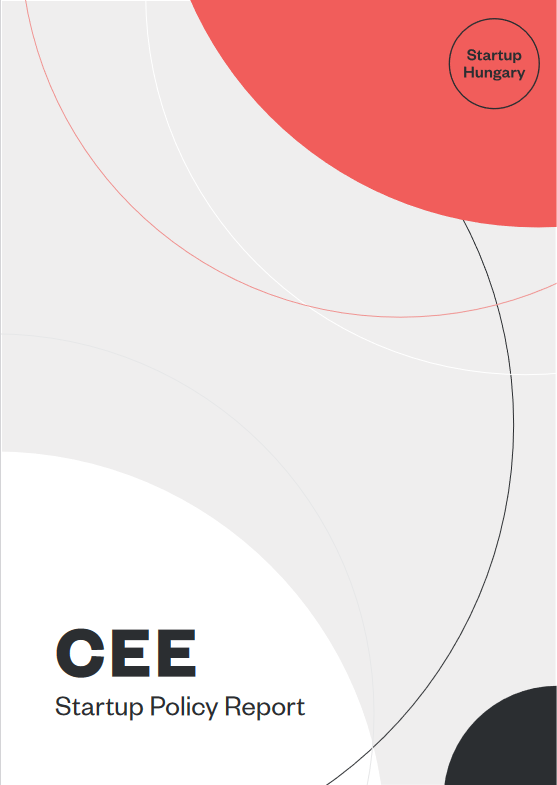CEE Startup Policy Report
If we want to see the startup environment thrive, it takes both a powerful top-down and a bottom-up effort to create a healthy startup ecosystem that will help the smallest, newest businesses to grow, so says the latest CEE Startup Policy Report published by Startup Hungary and prepared in cooperation with partner organizations from Central Europe and Baltics also comprising the Slovak Alliance for Innovation Economy and Civitta.
Key findings
It has been shown that startups exhibit low awareness of EU data regulations, and tend not to monitor legislative changes. GDPR provides an example of what happens when startups do not pay attention, while the EU regulates without startups in mind. The rush of last minute efforts by startups before it entered into force generated significant extra cost and bureaucracy, which disproportionately affected small companies compared to the burden on Google or Facebook. There is a fear new regulations – such as the Data Act, Digital Services Act, Digital Markets Act and AI Act – will be similarly burdensome.
It is essential that the highest levels of government are committed to creating a supportive policy environment for startups. When it comes to creating a policy environment that includes certain key regulatory measures for startups (such as Employee Stock Ownership Plans (ESOPs), SAFE, convertible note regulations, tax incentives for angels and investors, etc.), the level at which governments are engaged is crucial. The higher decision-making level of government involved, the greater the chance that necessary measures become law. In the Baltic countries, startups are on the prime ministers’ agenda and it makes a clear difference compared to countries where the highest level of contact is limited to, for example, a state secretary.
Startup advocacy groups play a critical role in persuading governments. They need to show the economic proof points to get government buy-in, both in terms of job creation and tax revenues. In the most developed ecosystems of the region, such as Lithuania, startup advocacy groups do not ask for financial support from the government: they talk about what they bring to the table. This performance-based approach resonates with policymakers, who in turn are more likely to advocate for a supportive regulatory and policy environment.
Read the full report and its executive summary at the original website of Startup Hungary.

